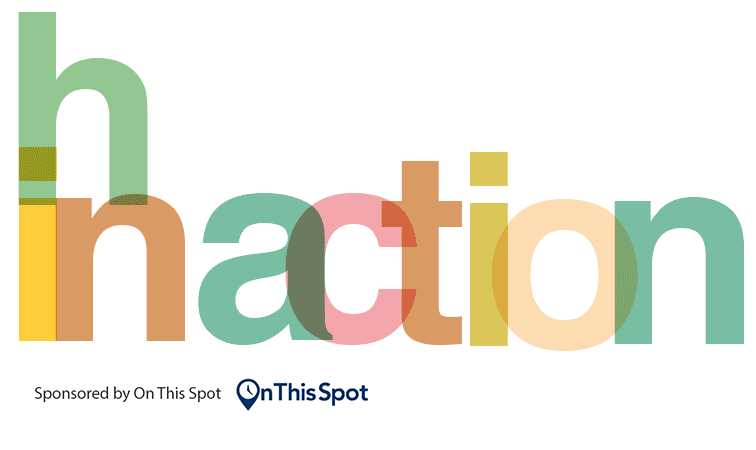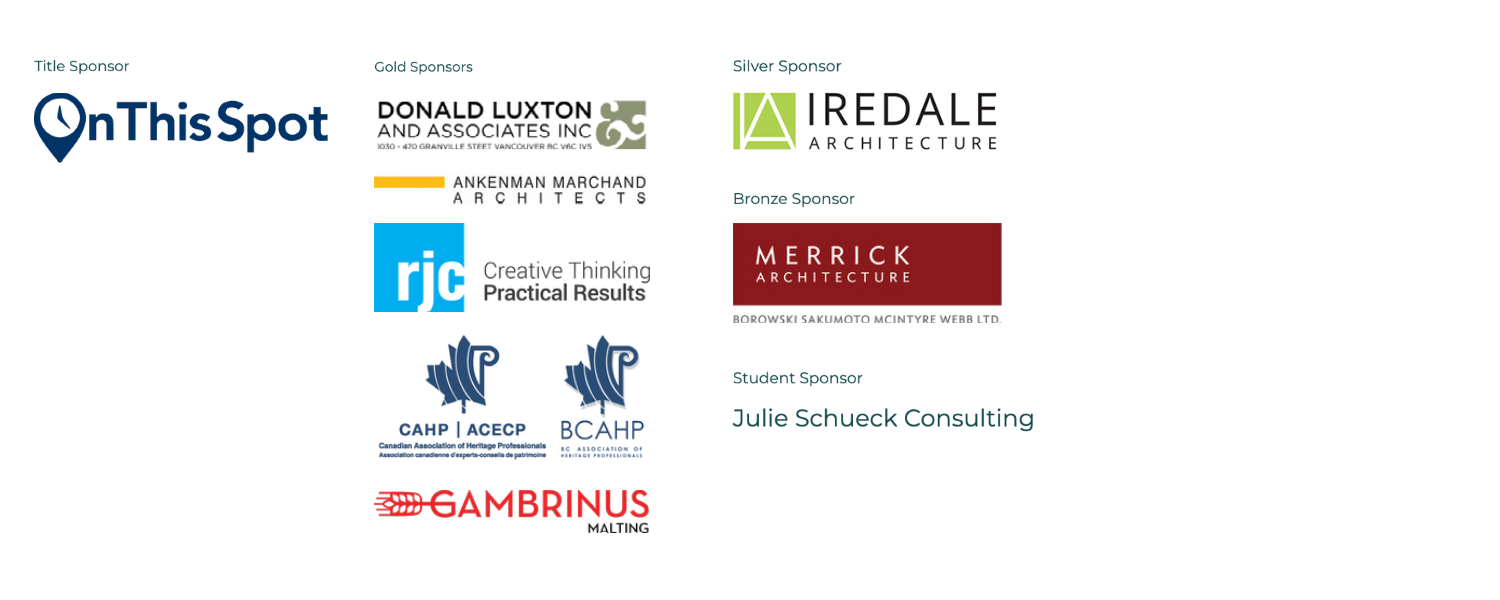- Heritage BC Awards
- Conference
- Heritage Week
- Cultural Maps
- Mapping Heritage Resources
- Submerged Heritage Resources Map
- Columbia Basin Region Historic Places Map
- Francophone Historic Places Map
- Chinese Canadian Historic Places Map
- Japanese Canadian Historic Places Map
- South Asian Canadian Historic Places Map
- War Monuments and Memorials Map
- Industrial Heritage Cultural Map
- Webinars
Intangible Heritage in a Tangible World

Register for the 2021 Heritage BC Conference
Download Intangible Heritage in a Tangible World
AIBC CES Participants may self-report this learning activity for AIBC Learning Unit consideration.
All sessions are eligible for organized & structured CPL units for PIBC Members.
Intangible Heritage in a Tangible World
Thursday, May 27, 2021
The Advocates and Practioners: 9:00am-12:00pm
The Innovators and Visionaries: 1:00pm-4:00pm
Tangible and intangible heritage may be very different, yet they can also be so interconnected that they can be described as two sides of the same coin. Carrying meaning and the embedded memory of humanity, tangible and intangible heritage rely on each other when it comes to understanding their meanings and importance.
Yet even as our understanding and practice of heritage evolves, there is still a tendency to explain heritage through visual and tactile interactions. It is for that reason, no doubt, that UNESCO recommended heritage sites develop new ways to bring together movable and immovable, tangible and intangible, natural and cultural heritage and “[to] develop documentation tools and standards in establishing holistic museums and heritage practices.”
In BC, our heritage conservation tools, inscribed in legislation, have not evolved in the same ways, leading heritage guardians to ask, “How do we recognize intangible heritage in a tangible environment?”
In this session, we explore this question and look closely at new directions from around the world and practices right here at home. We have divided the day into four conversations so that we can explore this vital topic from different perspectives and experiences.
The Advocates: we start the day in conversation with our panel of advocates, who have their fingers on the pulse of the big ideas and trends.
- Katharine Turvey: Canadian Commission for UNESCO
- George P. Nicholas: Department of Archaeology, Simon Fraser University
- Agnieszka Pawlowska-Mainville: University of Northern BC; Member International Committee on Intangible Cultural Heritage ICOMOS
- Moderator: Jennifer Iredale, CAHP, historian, curator, and heritage preservation; Heritage BC Director
The Practitioners: in this session, we explore the inventive ways our BC colleagues incorporate intangible cultural heritage into their work. Inspiration is in our own backyard.
- Bill Yuen, Executive Director, Heritage Vancouver
- Adrian Sinclair, Director of Engagement, Vancouver Mural Festival
- Krystal Paraboo, Curator, Vancouver Mural Festival
- Sherri Kajiwara, Director/Curator, Nikkei National Museum
- Imogene Lim, PhD, Department of Anthropology, Vancouver Island University
- Michael Schwartz, Director of Community Engagement, Jewish Museum and Archives of BC
- Eric Pelkey, Community Engagement Coordinator, W̱SÁNEĆ Leadership Council
The Innovators: we hear from those who are breaking new ground in this session.
Helping Communities inventory their Intangible Cultural Heritage
Community-based inventorying is a process that promotes dialogue between community members and generates and systematizes ICH information with and within the community. An ICH inventory is considered one of the main tools for safeguarding ICH because it empowers communities as knowledge producers and keepers, and it encourages ICH specialization. The methodologies and their results strengthen community relations and increase awareness about the importance of the Living Heritage manifestations. In this context, inventories are crucial for knowledge transmission from generation to generation. In this session, Lucas will present techniques for inventorying, referring to some principles and characteristics of the framework. Using the local example of May Day in New Westminster, plus an international example of community-based inventorying, Lucas will demonstrate the potential of creating community-based inventories.
Lucas Dos Santos Roque, intangible cultural heritage specialist; UNESCO ICH global network of facilitators
Planning Beyond the Tangible
Heritage planning and the resulting plan is a familiar process “that deals with the preservation, conservation, rehabilitation, restoration and management of built heritage resources.” But what happens when the process embraces an expanded meaning of heritage that includes both tangible (buildings, monuments, natural landscapes) and intangible or living heritage (oral traditions, celebrations, social manners, performing arts)? This was the approach taken by the City of Vancouver when it recognized a collective responsibility to “not only relate to our past, but to identify, protect, and pass on diverse cultural values and assets to future generations.” Zlatan talks about the process of understanding and discovery and the lessons learned when developing the 2020 heritage program that focuses on reconciliation, redress, cultural heritage, urban landscapes, and tangible and intangible elements.
Zlatan Jankovic, Senior Heritage Planner, City of Vancouver
The Visionaries: Reflecting on what they heard throughout the day, we ask our final group of panelists to propose a bold call to action.
- Cody Groat: Indigenous Heritage Circle; Department of History, Simon Fraser University
- Don Luxton: Donald Luxton & Associates
- Imogene Lim, PhD, Department of Anthropology, Vancouver Island University
- David Schimpky, Director of Secretariat at Canadian Commission for UNESCO
- Moderator: Wilco van Bemmel, CEO, Dunefield
Heritage BC is proud to have the support of these leading businesses:

Schedule and timings are subject to change without notice. Periodically check the website for changes or email us if you have questions.
